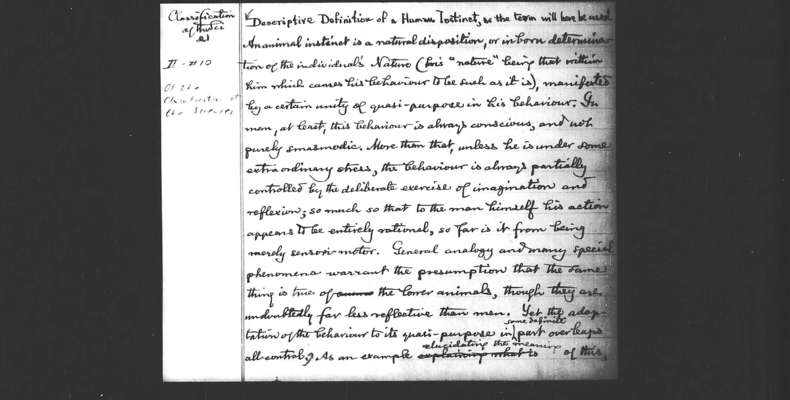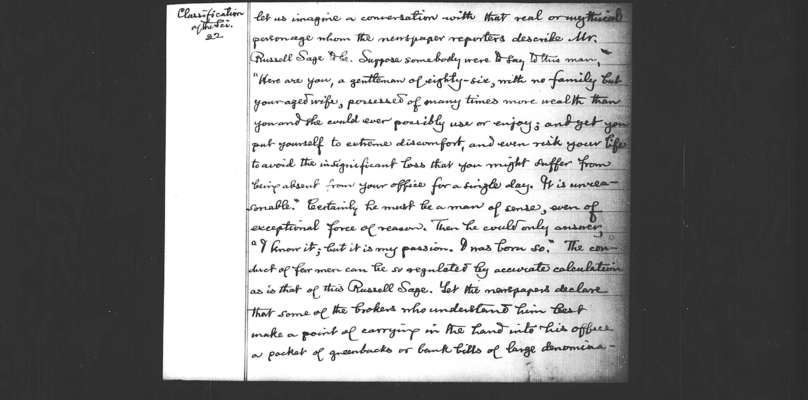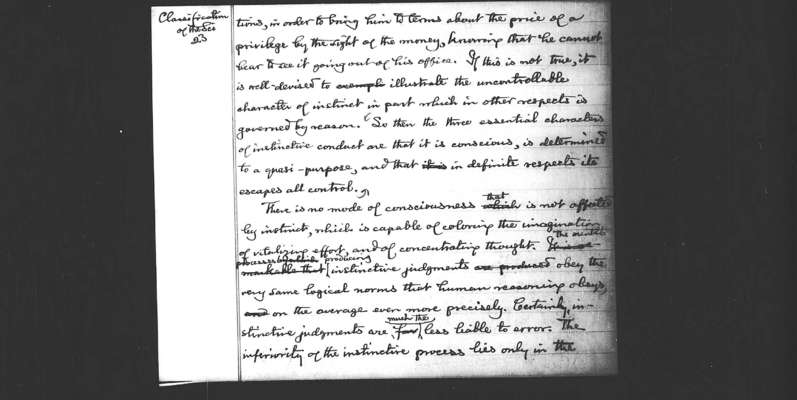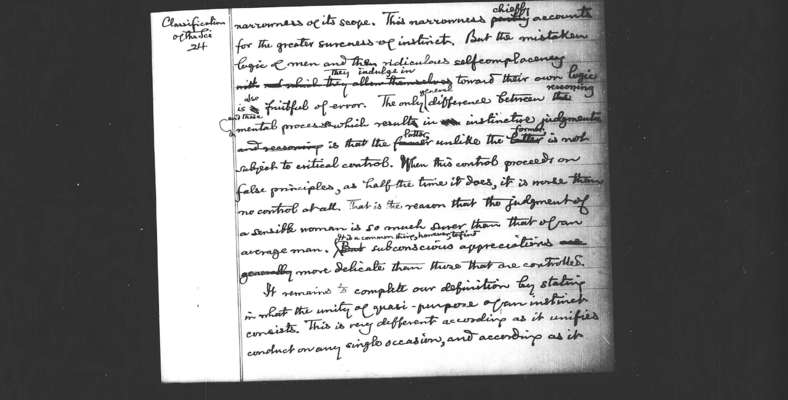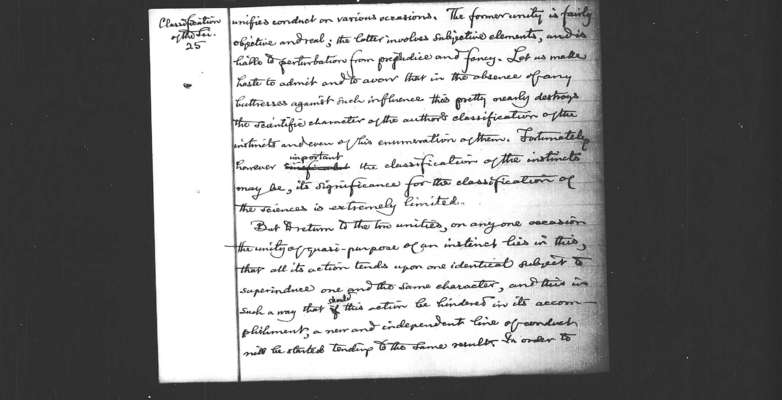Pages
21
Classification of the Sci 21
II - #10 Of the Classification of the Sciences
Descriptive Definition of a Human Instinct, as the term will here be used.
An animal instinct is a natural disposition, or inborn determination of the individual's Nature (his "nature" being that within him which causes his behaviour to be such as it is), manifested by a certain unity of quasi-purpose in his behaviour. In man, at least, this behaviour is always conscious, and not purely smasmodic. More than that, unless he is under some extraordinary stress, the behaviour is always partially controlled by the deliberate exercise of imagination and reflexion; so much so that to the man himself his action appears to be entirely rational, so far is it from being merely sensori-motor. General analogy and many special phenomena warrant the presumption that the same thing is true of the lower animals, though they are undoubtedly far less reflective than man. Yet the adaptation of the behaviour to its quasi-purpose in some definite part overleaps all control. As an example elucidating the meaning of this,
22
Classification of the Sci. 22
let us imagine a conversation with that real or mythical personage whom the newspaper reporters describe Mr. Russell Sage to be. Suppose somebody were to say to this man, "Here are you, a gentleman of eighty-six, with no family but your aged wife, possessed of many times more wealth than you and she could ever possibly use or enjoy; and yet you put yourself to extreme discomfort, and even risk your life to avoid the insignificant loss that you might suffer from being absent from your office for a single day. It is unreasonable." Certainly he must be a man of sense, even of exceptional force of reason. Then he could only answer, "I know it; but it is my passion. I was born so." The conduct of few men can be regulated by accurate calculation as is that of this Russell Sage. Let the newspapers declare that some of the brokers who understand him best make a point of carrying in the hand into his office a packet of greenbacks or bank bills of large denomina-
23
Classification of the Sci 23
tions, in order to bring him to terms about the price of a privilege by the sight of the money, knowing that he cannot bear to see it going out of his office. If this is not true, it is well-devised to illustrate the uncontrollable character of instinct in part which in other respects is governed by reason. So then the three essential characters of instinctive conduct are that it is conscious, is determined to a quasi-purpose, and that in definite respects it escapes all control.
There is no mode of consciousness that is not affected by instinct, which is capable of coloring the imagination, of vitalizing effort, and of concentrating thought. The mental processes producing instinctive judgments obey the very same logical norms that human reasoning obeys, on the average even more precisely. Certainly, instinctive judgments are much the less liable to error. The inferiority of the instinctive process lies only in the
24
Classification of the Sci 24
narrowness of its scope. This narrowness chiefly accounts for the greater sureness of instinct. But the mistaken logic of men and then ridiculous self-complacency they indulge in toward their own logic is also fruitful of error. The only general difference between reasoning and those mental processes which result in instinctive judgments is that the latter, unlike the former, is not subject to critical control. When this control proceeds on false principles, as half the time it does, it is worse than no control at all. That is the reason that the judgment of a sensible woman is so much surer than that of an average man. It is a common thing, however, to find subconscious appreciations more delicate than those that are controlled.
It remains to complete our definition by stating in what the unity of quasi-purpose of an instinct consists. This is very different according as it unifies conduct on any single occasion, and according as it
25
Classification of the Sci. 25
unifies conduct on various occasions. The former unity is fairly objective and real; the latter involves subjective elements, and is liable to perturbation from prejudice and fancy. Let us make haste to admit and to avow that in the absence of any buttresses against such influence this pretty nearly destroys the scientific character of the author's classification of the instincts and even of his enumeration of them. Fortunately, however important the classification of the instincts may be, its significance for the classification of the sciences is extremely limited.
But to return to the two unities, on any one occasion the unity of quasi-purpose of an instinct lies in this, that all its action tends upon one identical subject to superinduce one and the same character, and this is such a way that should this action be hindered in its accomplishment, a new and independent line of conduct will be started tending to the same result. In order to
